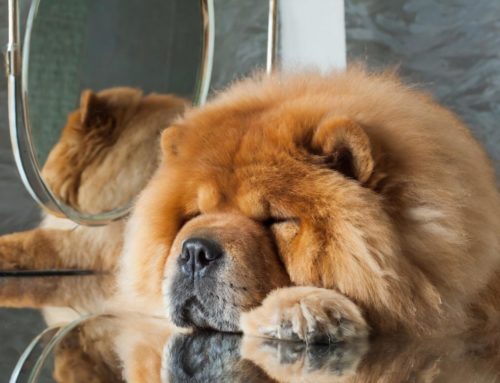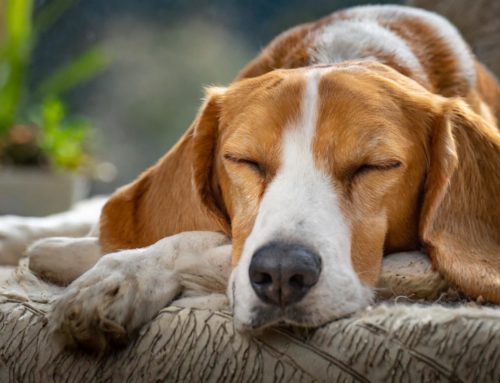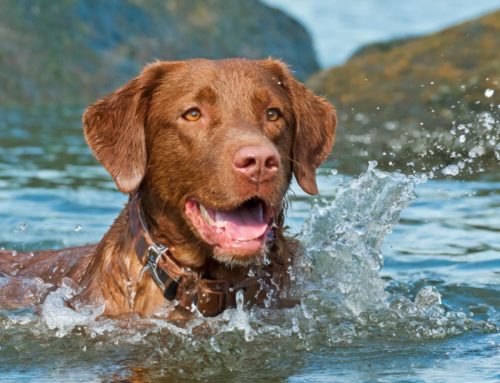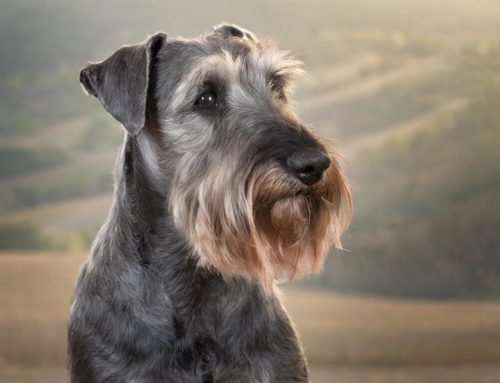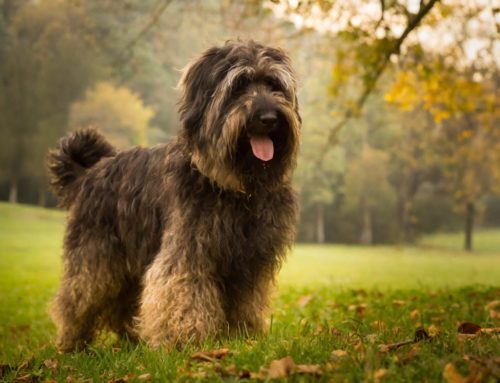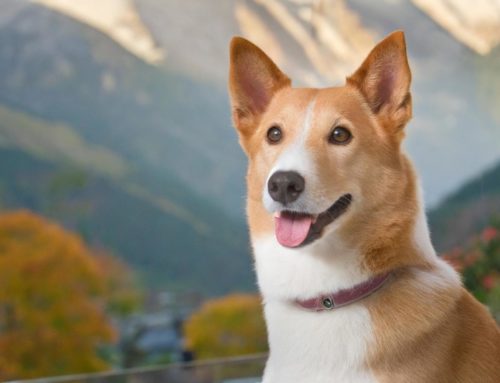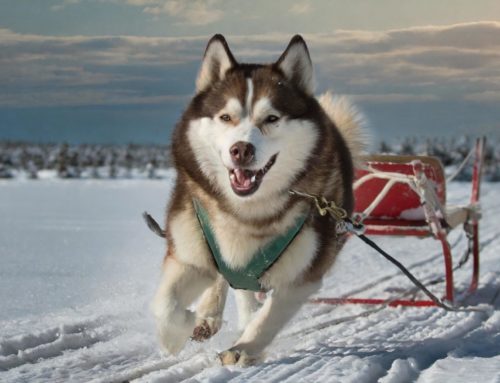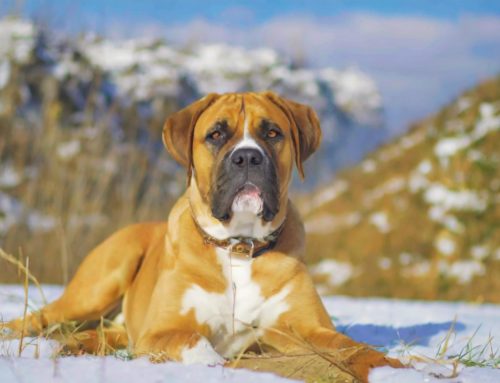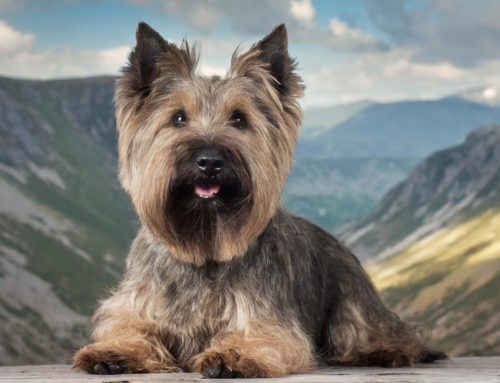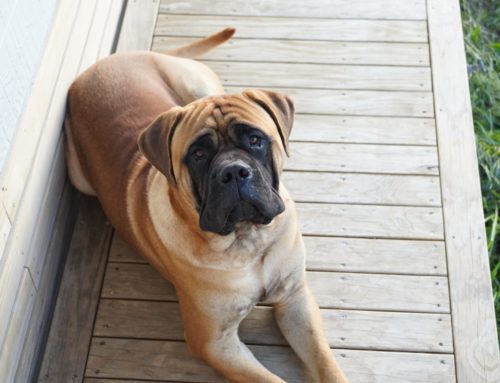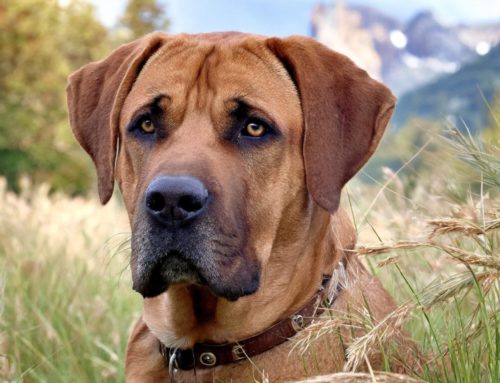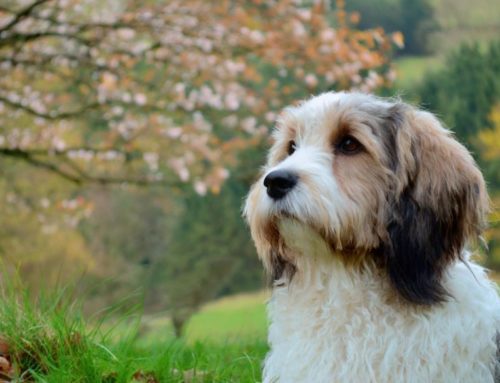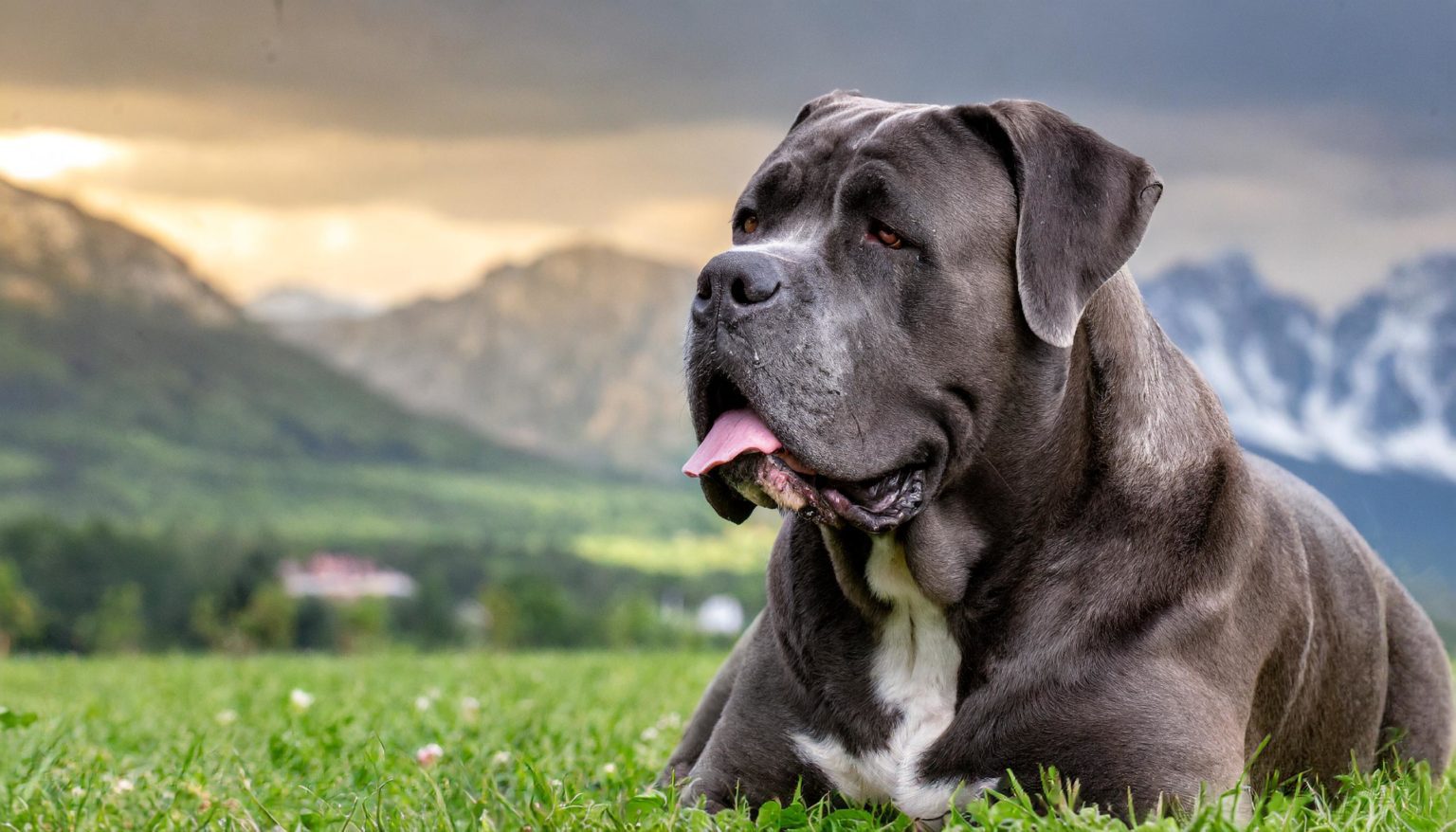
The Cane corso, a majestic dog breed with a rich history, traces its origins back to the Roman Empire. These dogs were originally used as guard dogs, herding dogs and for hunting big game. Over the centuries, breeders refined the Cane corso into the breed we know today: an intelligent, strong and versatile dog.
In some countries, such as the Netherlands, ear and tail docking is banned. This contributes to the welfare of the breed and ensures that the Cane corso is kept in a responsible manner. Today’s Cane corso is known for its loyalty and versatility, an impressive legacy of its days as a Roman fighting dog.
FCI group 2 Molossers
An impressive and powerful dog breed, the Cane corso belongs to the FCI (Fédération Cynologique Internationale) Group 2. This group is classified as ‘Pinschers, Schnauzers, Molossers and Swiss Mountain Dogs’. The Cane corso specifically falls under the Molossers category, known for its large, strong dogs with a robust build.
The Cane corso, originally from Italy, is a dog with a deep historical background, often used for guarding, protection and as a working dog.
This breed is characterised by its athletic body, impressive muscular strength and an alert, intelligent gaze. The Cane corso has a powerful appearance with a broad skull, strong muzzle and well-developed jaws.
FCI Group 2 recognises the Cane corso as a breed with exceptional working characteristics and loyalty. These dogs are known not only for their physical strength, but also for their balanced and stable character. They are very devoted to their family, which makes them excellent companion and protection dogs.
The appearance of the Cane corso italiana
The Cane corso, recognised by the Cane corso Club Netherlands and the Dutch Cane corso Association, is an impressive breed with a noble appearance. These dogs are descendants of the ancient Mastino and are known for their robust and powerful build.
An adult Cane corso has a distinctive broad head and a skull that is broad and flat. Their nose is large and black with wide open nostrils, and their eyes are oval in shape, often with a dark mask, giving them an alert and intelligent expression.
The shoulder height of an adult Cane corso can be impressive, with a sturdy and muscular physique that is more long than tall. Their tail is set high and carried straight up, and their coat, which can range from grey to black or even red, is short and requires regular brushing to remove loose hairs.
Hereditary diseases such as elbow dysplasia, among others
The Cane corso, a powerful and impressive breed, is unfortunately also prone to various hereditary diseases and disorders.
Below is a list of some common health problems in this breed:
- Hip dysplasia: A common problem in larger breeds, where the hip joint is not formed correctly, which can lead to arthritis and pain.
- Elbow dysplasia: Similar to hip dysplasia, but in the elbow joint, which can cause lameness and pain.
- Gastric Dilatation-Volvulus (gastric torsion): A serious condition in which the stomach twists and swells, requiring immediate medical attention.
- Demodectic Scab: A skin condition caused by mites, leading to hair loss and skin infections.
- Cherry Eye: A condition in which the tear gland of the third eyelid protrudes, causing irritation and redness.
- Cardiomyopathy: A heart condition affecting the muscle of the heart, which can lead to heart failure.
- Entropion and Ectropion: Eyelid problems in which the eyelid turns inwards (entropion) or outwards (ectropion), which can cause irritation and damage to the eye.
- Hypothyroidism: A condition in which the thyroid gland does not produce enough hormones, which can lead to weight gain, lethargy and skin problems.
The character of the Cane corso
The Cane corso is known for its impressive character, which encompasses both strength and gentleness. Originating from Italy, this majestic breed combines vigilance with a deep loyalty to its family. One of the most distinctive characteristics of the Cane corso is its protective nature.
These dogs are naturally watchful and protective, making them excellent guard dogs. They are devoted to their family and can be very affectionate with their closest people. However, this protective instinct also makes them reserved and sometimes distrustful of strangers, underscoring the importance of early and ongoing socialization.
The Cane corso’s intelligence and trainability are remarkable. They respond well to consistent and respectful training, requiring a balanced mix of determination and patience. Because of their intelligence, they can sometimes be stubborn, so clear and consistent leadership is necessary.
Within the family, they are often loving and gentle, especially if well socialized from a young age. However, their interaction with children should always be supervised, given their large size and strength.
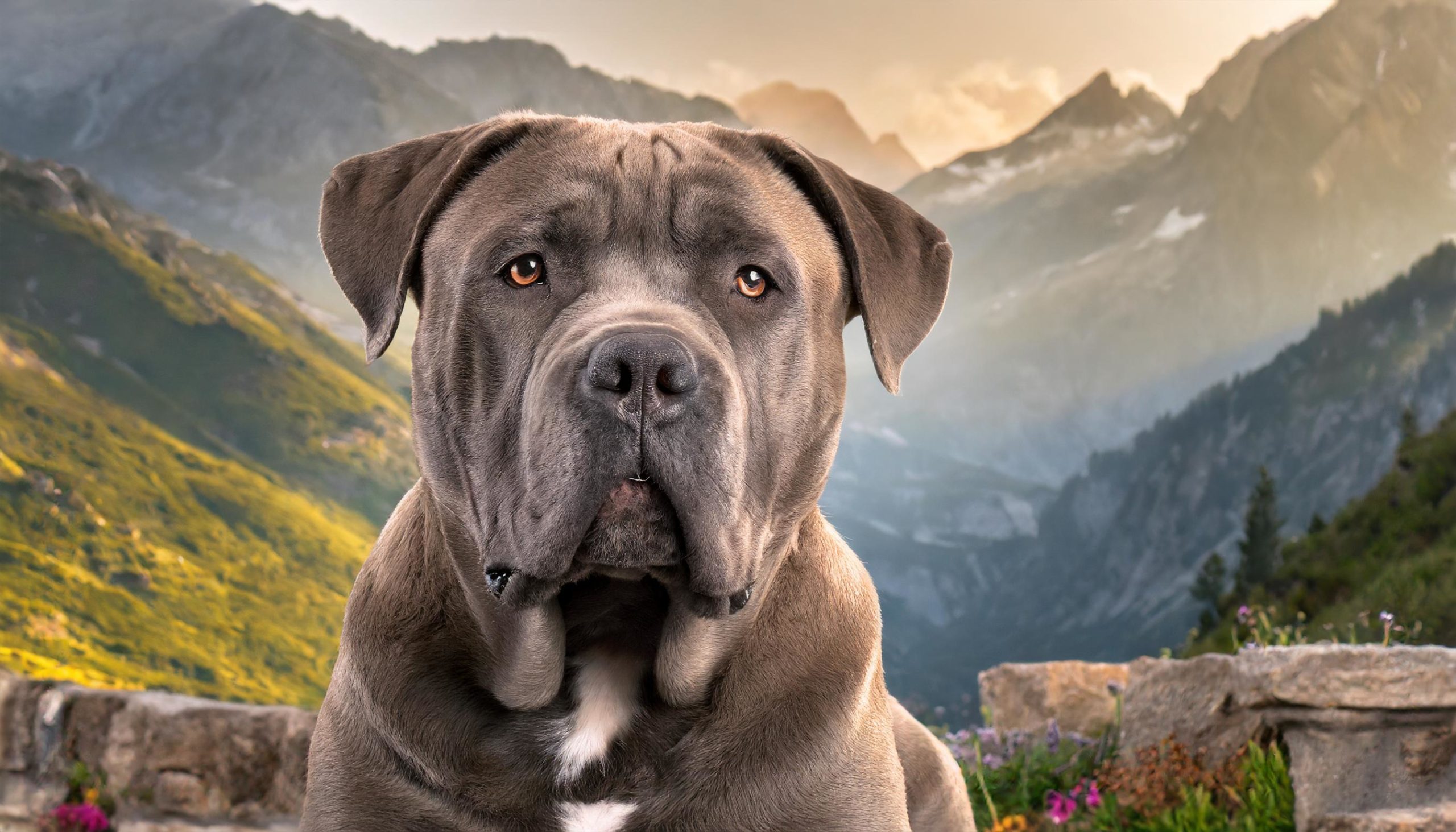
The Care of the Cane corso
Caring for a Cane corso requires a high degree of responsibility and consistency, given their physical size and character traits. These dogs, recognised by the breed association Cane corso Italiano, have specific grooming needs that owners should be aware of.
First of all, the Cane corso’s coat care is relatively simple. Their short coat, often in shades of grey or black, requires weekly brushing to remove loose hairs and keep the skin healthy. Bathing is only necessary occasionally, unless they get particularly dirty. As for health, owners should be aware of hereditary conditions that are common in the breed.
Regular checks at the vet are essential, and it is advisable to have the Cane corso tested for common hereditary conditions. Raising a Cane corso puppy requires patience and consistency. These dogs are intelligent and eager to learn, but need clear guidance.
Good socialisation from an early age is crucial to ensure they grow into well-adjusted adult dogs. In addition, sufficient exercise is important. The Cane corso needs daily exercise to stay physically and mentally balanced. Activities such as long walks, running and playing are essential for their well-being.
Socialisation and consistent upbringing of this guard dog
Socialisation and upbringing of a Cane corso are crucial aspects of owning this imposing breed. Cane corsos, with their broad skull, high set tail and distinctive grey or black mask, require a consistent and thoughtful approach in their training.
Socialisation should start early, ideally as a Cane corso puppy. It is important to introduce them to various people, environments and other animals. This helps make them well-adjusted and less anxious or aggressive in new situations. Good socialisation lays the foundation for a stable temperament, especially important given their strength and size.
Consistent upbringing is also essential. Cane corsos are intelligent and learn quickly, but their protective instinct can become dominant without proper guidance. Incorrect upbringing can lead to a dog that is almost uncontrollable. Positive reinforcement, patience and clarity in commands are effective when training this breed.
How much experience does a Cane corso require
The Cane corso is a breed ideally suited to experienced dog owners. Given their impressive size, strength and protective nature, this breed requires an owner well versed in training and managing large, dominant dog breeds.
Experienced owners are usually better able to provide effective training and socialisation, crucial for developing a well-adjusted and manageable Cane corso.
For inexperienced dog owners, the Cane corso can be challenging. Without the necessary knowledge and experience, new owners may struggle to provide the necessary structure, guidance and training.
This can lead to behavioural problems, as the Cane corso needs clear, consistent and assertive leadership to realise its potential as a loyal and protective companion.
Is training necessary?
Training is absolutely essential for the Cane corso. Given their large size, powerful build and dominant nature, it is crucial that these dogs are raised and trained properly from an early age. Without adequate training, a Cane corso can be difficult to control, which can become problematic for both the dog and its environment.
Training should begin as soon as the Cane corso is a puppy. Basic obedience training, where commands such as ‘sit’, ‘stay’, and ‘come’ are taught, is indispensable.
In addition, socialisation training is essential to ensure that the Cane corso gets along well with other dogs, animals and people. This helps prevent behavioural problems such as fear and aggression. A Cane corso is intelligent and eager to learn, but it can also be stubborn. Therefore, a consistent and patient approach is needed.
Positive reinforcement methods usually work best with this breed. Physical force or intimidation is not effective and can even be counterproductive.
How much exercise does a Cane corso need?
A Cane corso, known for its strength and athletic build, needs a significant amount of exercise daily to stay healthy both physically and mentally. On average, this active breed requires about one to two hours of exercise per day. This activity can range from walks and playtime to more intense exercises such as running or agility training.
Long walks are essential for the Cane corso, not only to expend their physical energy, but also to provide them with mental stimulation by exploring new environments. Playing in a safe, fenced area where they can run freely and expend their energy is also recommended.
It is important to keep in mind that although the Cane corso needs plenty of exercise, overly strenuous or intense activities, especially in young dogs, should be avoided so as not to stress their growing bones and joints.
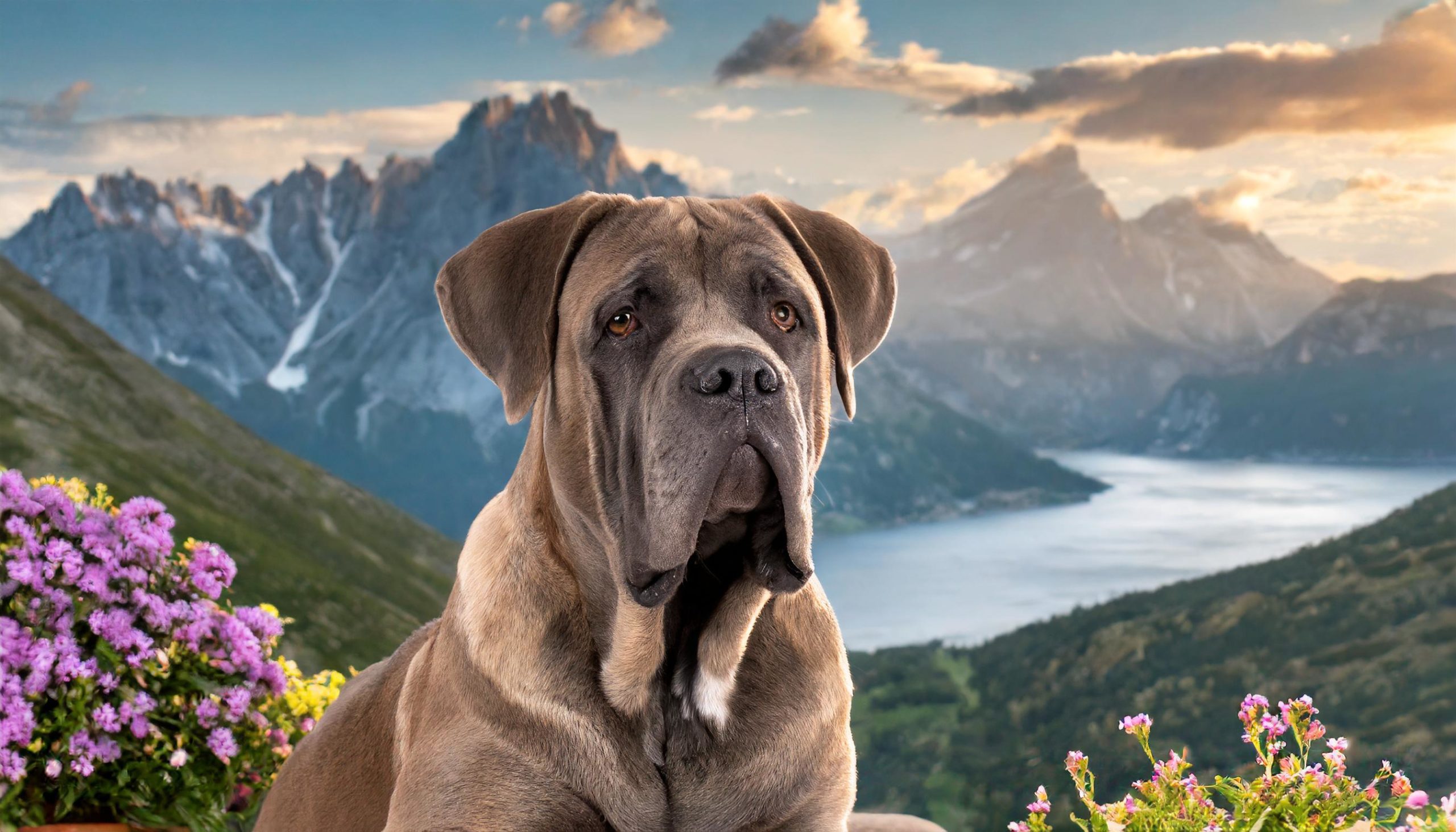
How does it getting along with children?
The Cane corso can be an excellent companion for children, provided it is properly socialised and raised. With its protective nature and loyal nature, the Cane corso can be very devoted to family members, including children. However, due to their size and strength, it is essential to carefully supervise interactions between the Cane corso and children.
It is important that both the Cane corso and children learn how to interact in a safe and respectful manner. Children should be taught not to tease the dog, disturb it while eating or try to ride on it. Similarly, the Cane corso should be socialised with children from an early age and trained to be gentle and careful with them.
Cane corsos need clear guidance and structure. Without proper training and boundaries, they may unintentionally play too rough or their protective instinct may become too strong.
Advantages of a Cane corso
- Loyalty and Protection: Cane corsos are known for their deep loyalty to their family and are excellent guard dogs.
- Intelligence: This breed is intelligent and eager to learn, making them relatively easy to train.
- Family Friendly: With proper socialisation and training, they can be very loving and gentle within the family.
- Physical Robustness: Their strong build makes them suitable for various activities and tasks.
Disadvantages of a Cane corso
- Size and Strength: Their size and strength can be challenging for inexperienced owners.
- Training and Socialisation Needs: They need consistent upbringing and lots of socialisation, which can be time-consuming.
- Potential Health Problems: Like many large breeds, they are prone to certain health problems, including hip and elbow dysplasia.
- Space requirements: Because of their size, they need a lot of space, both indoors and outdoors.
- Legal and Insurance Issues: Some regions may have specific laws or higher insurance costs for keeping a Cane corso.
How old will a Cane corso get?
The life expectancy of a Cane corso varies, but in general, these dogs can reach an age of around 10 to 12 years.
As with all breeds, the specific lifespan of an individual Cane corso depends on several factors, including genetics, lifestyle, diet and the quality of veterinary care.
Price of a Cane corso
The price of a Cane corso can vary considerably, depending on whether you choose to purchase from a breeder or adopt through a shelter or rehoming organisation.
When buying a Cane corso from a recognised breeder, the cost can vary greatly depending on factors such as the dog’s pedigree, the breeder’s reputation and experience, and whether the puppy has already undergone essential health checks and vaccinations.
Prices for a Cane corso from a breeder can range from around $1,000 to $3,000 or more.
On the other hand, adopting a Cane corso from a shelter or through a rehoming organisation can be a more affordable option.
Adoption costs often range from around $100 to $300, depending on the shelter or organisation. These costs often cover basic care such as vaccinations, spaying or neutering, and sometimes microchipping.
